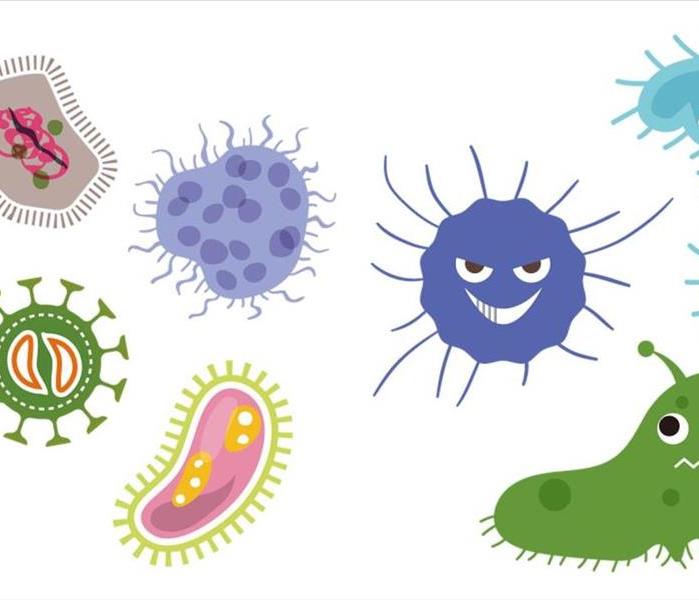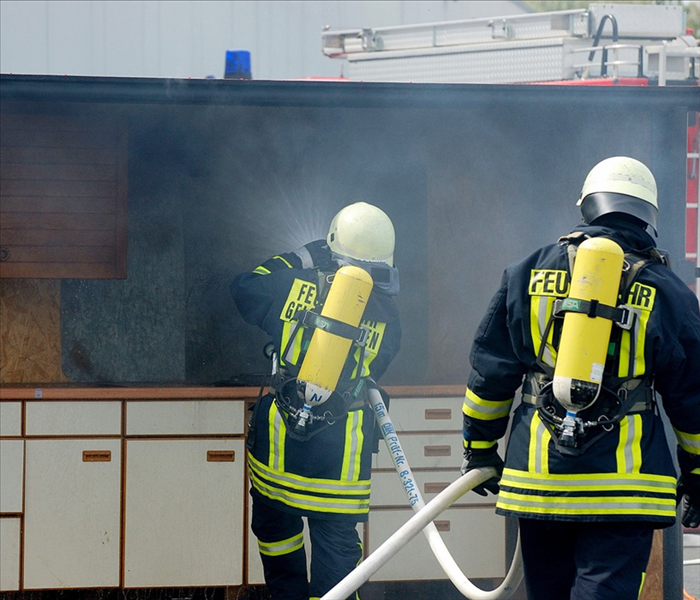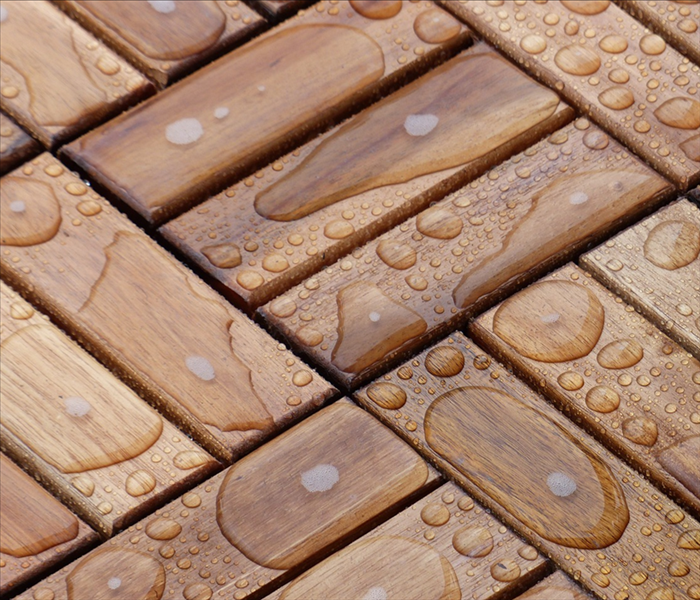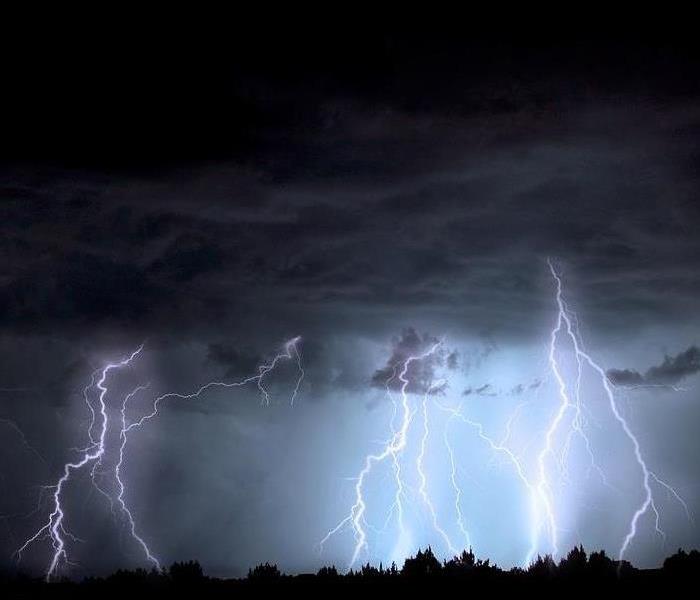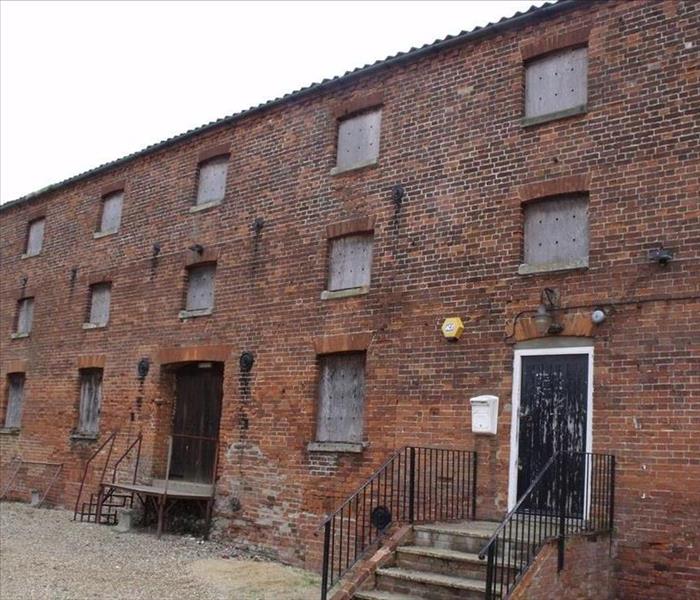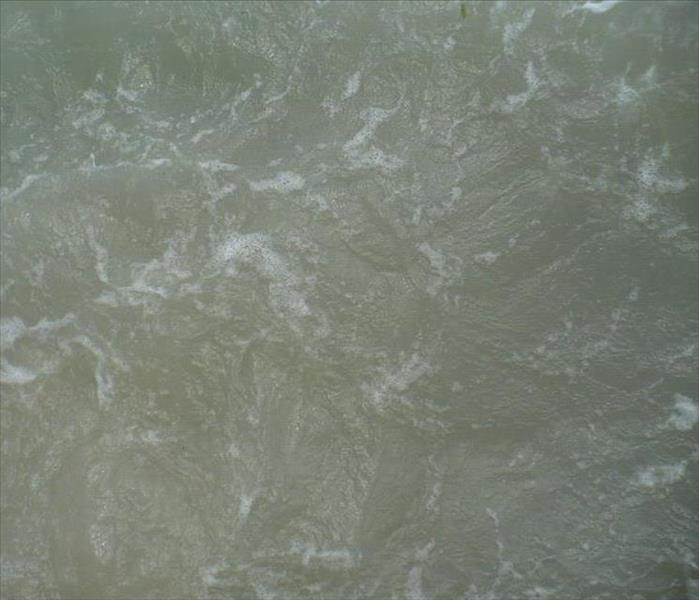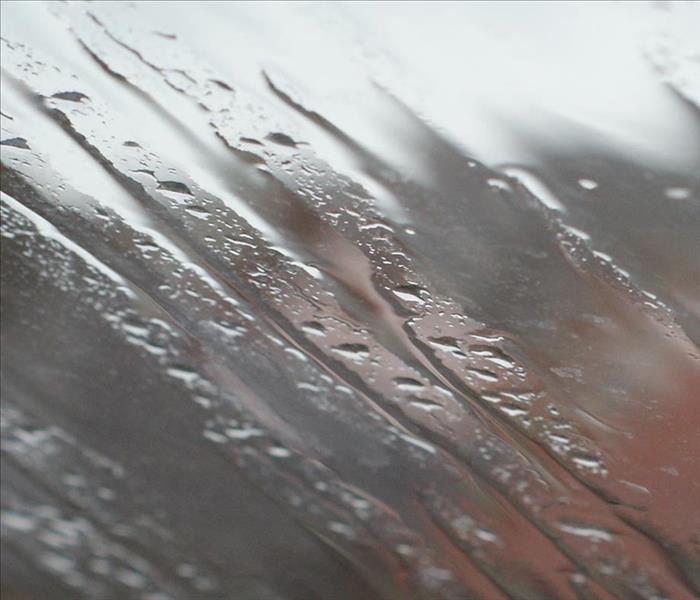Recent Posts
The Importance of Professional Mold Remediation: Protect Your Home and Health
8/20/2024 (Permalink)
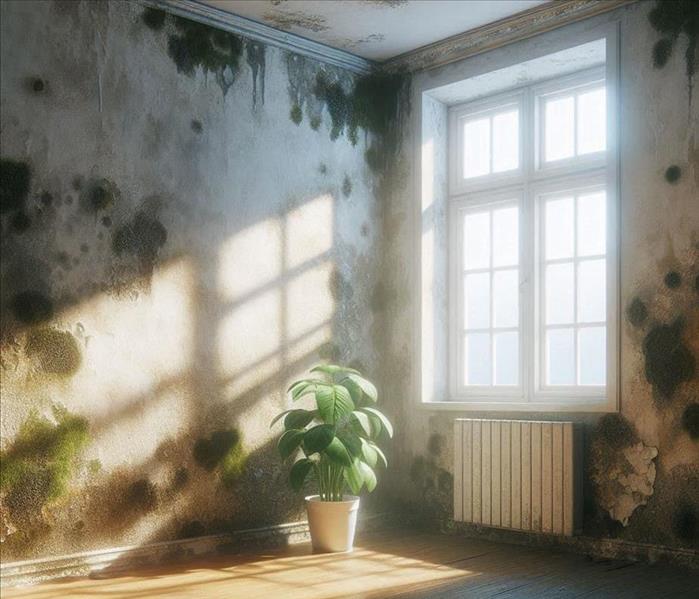 When mold makes itself at home, it's time to call in the experts. Let’s kick it out for good!
When mold makes itself at home, it's time to call in the experts. Let’s kick it out for good!
Mold. Just hearing the word can make any homeowner cringe. This sneaky invader can grow quickly, spreading spores that are not only unsightly but can also cause serious health problems. Whether it’s black mold hiding in your basement or mildew creeping into your bathroom, professional mold remediation is essential for maintaining a safe and healthy home. Here’s why calling in the experts is the right move.
Mold Isn't Just a Cosmetic Problem
Many people believe that mold is just an eyesore that can be wiped away with a cleaning product. However, mold is a sign of a much bigger issue: moisture. When mold appears, it often means there is excess moisture in your home that needs to be addressed. Simply scrubbing away the visible mold won't solve the root of the problem. Professional mold remediation ensures that not only is the mold removed, but the source of moisture is identified and corrected to prevent future growth.
Health Risks of Mold Exposure
Mold exposure can lead to a variety of health effects for humans and animals within a household. Professional mold remediation companies, like SERVPRO®, have the knowledge and equipment to safely remove mold and ensure that your home is a healthy environment for you and your family.
Professional Equipment and Expertise
When it comes to mold remediation, experience and proper tools matter. SERVPRO teams use advanced technology such as air scrubbers and HEPA vacuums to remove mold spores from the air and surfaces. They also take steps to contain the affected area, preventing the mold from spreading further during the cleanup process. By choosing professional mold remediation, you’re ensuring that the job is done right the first time.
Peace of Mind
Dealing with mold can be stressful, especially if you're unsure of the extent of the problem. A professional remediation team not only handles the cleanup but also provides you with peace of mind. You'll know that your home has been thoroughly inspected, treated, and is safe from future mold growth.
Don’t let mold take over your home. If you suspect mold growth, call the experts at SERVPRO of Howard County. With professional mold remediation, you’ll protect both your property and your family’s health.
Top Causes of Water Damage in Homes: Prevention and Solutions
8/20/2024 (Permalink)
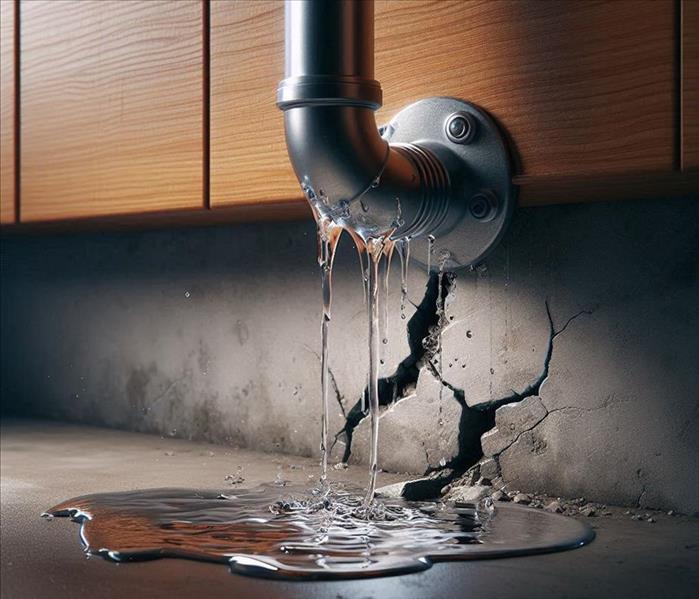 Sometimes, home improvement comes with unexpected challenges. When water decides to make a splash, it’s time to take action and restore order.
Sometimes, home improvement comes with unexpected challenges. When water decides to make a splash, it’s time to take action and restore order.
Water damage is a common and costly problem for homeowners. It can lead to structural damage, mold growth, and a decrease in property value. Understanding the top causes of water damage and how to address them can help you prevent costly repairs and maintain a safe, dry home. Here’s a closer look at the leading culprits behind water damage and what you can do to safeguard your property.
Broken Pipes
One of the most frequent causes of water damage is broken or burst pipes. Pipes can break due to freezing temperatures, corrosion, or high water pressure. Frozen pipes are particularly troublesome in colder climates, as the water inside them expands and causes them to crack. Keeping an eye on your pipes and insulating them in vulnerable areas can help prevent this issue.
Roof Leaks
A leaking roof can lead to significant water damage, especially during heavy rain. Roof leaks often stem from damaged shingles, cracked flashing, or clogged gutters. Performing regular roof inspections and addressing issues promptly can prevent leaks from turning into more serious problems.
Faulty Appliances
Appliances like washing machines, dishwashers, and water heaters can malfunction and leak, causing water damage to surrounding areas. Routine maintenance and prompt repairs can help minimize the risk of leaks and water damage from these appliances.
Clogged Gutters
Gutters are designed to direct water away from your home’s foundation. When gutters get clogged with leaves and debris, water can overflow and seep into your home’s foundation, causing damage. Keeping your gutters clean and clear is essential for effective drainage and preventing water damage.
Sump Pump Failures
Sump pumps play a crucial role in preventing basement flooding, particularly in areas prone to heavy rainfall. A malfunctioning sump pump can lead to significant water damage in your basement. Regularly checking your sump pump and having backups in place can help ensure it works when you need it most.
Foundation Cracks
Cracks in your home’s foundation can allow water to seep into your basement or crawl space. These cracks might be caused by settling soil, poor construction, or weather conditions. Addressing foundation issues and sealing cracks can help prevent water intrusion and protect your home’s structural integrity.
Understanding these common causes of water damage can help you take proactive measures to prevent them. If you do experience water damage, professional restoration services can address the issue quickly and efficiently, minimizing damage and restoring your home to its original condition.
How to Prepare for and Recover from a Severe Storm
8/20/2024 (Permalink)
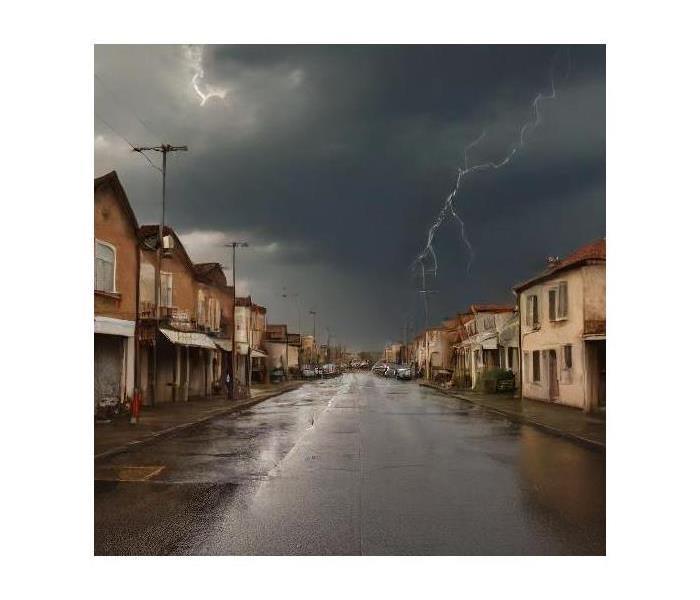 Keep your eyes on stormy skies and keep your indoors dry!
Keep your eyes on stormy skies and keep your indoors dry!
Severe storms can be both frightening and destructive, causing widespread damage and disruption. Whether you’re facing a hurricane, tornado, or severe thunderstorm, knowing how to prepare and respond can make a significant difference. Here’s a comprehensive guide on how to prepare for and recover from a severe storm, helping you stay safe and minimize damage.
Preparing for a Severe Storm
Emergency Kit: Assemble an emergency kit with essential supplies, including non-perishable food, water, medications, a flashlight, batteries, a first aid kit, and important documents. This kit should last at least 72 hours to cover the period when utilities and services might be disrupted.
Home Inspection: Ensure your home is storm-ready by checking for and reinforcing potential vulnerabilities. Secure windows and doors with storm shutters or plywood, and clear gutters and downspouts to prevent water damage.
Communication Plan: Establish a family communication plan, including emergency contact information and meeting points. Ensure all family members know what to do in case of evacuation and how to stay informed through weather alerts and news updates.
Insurance Review: Review your homeowner’s insurance policy to ensure you have adequate coverage for storm damage. Understand the terms of your policy, including coverage limits and deductibles, and make any necessary adjustments.
During the Storm
Seek Shelter: During severe storms, seek shelter in a safe location away from windows and exterior walls. For tornadoes, go to a basement or an interior room on the lowest floor. For hurricanes or severe thunderstorms, stay indoors and avoid using electrical appliances.
Stay Informed: Keep track of weather updates through a battery-powered radio or a weather app. Follow local authorities’ instructions and be prepared to adjust your plans based on the latest information. The Weather Channel offers real-time updates and alerts.
Avoid Flooded Areas: If you encounter floodwaters, avoid driving or walking through them. Just six inches of moving water can knock you off your feet, and it’s impossible to gauge the depth and speed of floodwaters accurately. For flood safety tips, visit the Centers for Disease Control and Prevention (CDC).
Recovering from a Severe Storm
Safety First: Once the storm has passed, ensure it’s safe to leave your shelter. Avoid downed power lines, and check for structural damage before re-entering your home. Use a flashlight rather than candles to avoid fire hazards.
Document Damage: Take photos and videos of any damage to your property for insurance purposes. This documentation will be crucial for filing a claim and assessing the extent of the damage.
Clean Up: Begin clean-up efforts once it’s safe. Remove debris and contaminated items to prevent mold growth and further damage. Use a dehumidifier to dry out affected areas and consider hiring professional restoration services like SERVPRO of Howard County.
Seek Assistance: If needed, contact local disaster relief organizations or government agencies for assistance. They can provide resources and support for those affected by severe storms, including temporary housing, financial aid, and emergency services.
Being well-prepared and informed can make a significant difference when dealing with severe storms. By following these steps, you can protect yourself, your family, and your property, ensuring a more manageable recovery process after the storm has passed.
Mold Defense
8/22/2023 (Permalink)
Defending against mold growth can feel like such a major feat to take on, but have no fear, your local mold specialists are on the case! However, just because we are on hand to help whenever mold should occur, we think you should be prepared to prevent mold on your own. Use these following tips to amp up your mold defense:
- Keep the humidity in your home or business between 30-60%
- Make sure your property has property drainage to keep water away from your building's foundation
- Regularly inspect your plumbing and other appliances for any leaks. Water left to sit is mold's favorite food!
- Keep your gutters and drains clear and free of any debris
- Inspect your roofs, windows, and any other potential entryways for water. Perform maintenance ASAP when necessary
- Immediately deal with water intrusions in your home
- Never try DIY mold removal!
- If your home experiences water damage, call SERVPRO of Howard County for immediate assistance, as improper mitigation of water damage can lead to secondary damages such as mold
Dealing with any damage to your home or business can feel so daunting, but that is what SERVPRO of HoCo is here for. Other mold cleaning services might not take the time to educate you and answer any questions you might have, but we know how important it is to make sure you understand the process your home is undergoing in such stressful times. We're the number one name in the disaster mitigation industry and we're here to help!
Extinguishing a Kitchen Fire
8/22/2023 (Permalink)
When a fire starts in the kitchen, you need to act fast to keep the fire from getting out of control. But how you act depends on what kind of fire you have and where it is. Follow these instructions for putting out kitchen fires:
If you have a fire in the oven or the microwave, close the door or keep it closed, and turn off the oven. Don’t open the door! The lack of oxygen will suffocate the flames. If your oven continues to smoke like a fire is still going on in there, call the fire department. If you have a fire in a cooking pan, use an oven mitt to clap on the lid, then move the pan off the burner, and turn off the stove. The lack of oxygen will stop the flames in a pot.
If you can’t safely put the lid on a flaming pan or you don’t have a lid for the pan, use your fire extinguisher. Aim at the base of the fire — not the flames. Never use water to put out grease fires! Water repels grease and can spread the fire by splattering the grease. Instead, try one of these methods:
If the fire is small, cover the pan with a lid and turn off the burner. Throw lots of baking soda or salt on it. Never use flour, which can explode or make the fire worse. Smother the fire with a wet towel or other large wet cloth.
Use a fire extinguisher. Don’t swat at a fire with a towel, apron, or other clothing. You’re likely to fan the flames and spread the fire. If the fire is spreading and you can’t control it, get everyone out of the house and call 911! Make sure everybody in your family knows how to get out of the house safely in case of a fire. Practice your fire escape route.
Don't Let Water Wait
8/22/2023 (Permalink)
When a disaster occurs in your home or business, it typically comes and goes. Fires burn and then they die out, wind blows through your neighborhood and then disappears, but water works a little differently than other types of damage. Water stays, and in many cases it continues to get worse and worse.
If you find an area in your flooring, walls, ceiling, appliances, etc. that is affected by water damage, it must be coming from some source. If that water is not removed and the source fixed, then the damage caused by that water will only grow. Oftentimes, it will turn into a nasty mold problem that nobody wants to have to deal with. The longer you wait to mitigate the problem, the more of a problem it will become!
Water damage can also come in many forms such as rotting wood, rusting metal, or even something as simple as mold or mildew. Sometimes it can be very hard to spot, but if you think you’ve spotted the beginnings of a water issue in your space, give us a call for an inspection so we can help you as soon as possible! When it comes to any type of disaster in your home or business, the sooner it is caught and remediated, the better. We are here for you no matter how big or small the disaster may be!
Safety Tips During and After a Flood
8/22/2023 (Permalink)
SAFETY FIRST (For businesses and home owners)
- Account that all employees or family members are safe by establishing evacuation plans in advance, identifying areas outside the building that are designated meeting places. Assign select individuals to keep a list of their assigned team’s names and contact numbers in order to account for their whereabouts.
- If water enters the building and evacuation becomes impossible, move to an upper floor, and wait for rescuers.
- While evacuating, avoid attempting to drive through floods or rising water, nearly half of all flash flood fatalities are auto-related.
- Do not touch electrical equipment if you are wet or standing in water.
- Do not walk through moving water. Even six inches of moving water can make you fall.
- Use no open flames (there may be gas escaping from ruptured mains).
- Avoid floodwaters. Water may be contaminated by oil, gasoline or raw sewage. Water may also be electrically charged. If the water has entered the structure through the flooding of a creek, stream or river, or if it has filtered through insulation during its intrusion, it is considered to be black water and could be hazardous to your health. Avoid contact with contaminated items as much as possible.
- Stay out of any building if it is surrounded by floodwaters.
- Listen for news reports to learn if the community’s water supply is safe to drink.
- Return only when authorities indicate it is safe.
SECURE THE PROPERTY
- Contact local emergency officials.
- Secure main entrances to building.
- Alert Security company and Alarm company of the situation.
STABILIZE THE PROPERTY
- Open basement or low-level windows to equalize water pressure on the building’s foundation and walls.
- Begin water damage mitigation steps only if local emergency officials deem the structure safe to enter.
- Notify your insurance agent or Risk Manager to determine insurance policy guidelines and steps to take.
Be Prepared!
7/24/2023 (Permalink)
Fire experts agree that people have as little as two minutes to escape a burning building before it is too late to exit safely. When it comes to a fire escape plan, every second counts. In a matter of seconds, even the smallest flame can become a massive blaze. The American Cross conducted a survey that found only 26% of families have made and practiced their fire escape plans. If you don't have a plan in place for your home or business, use these tips to develop one!
Draw a map of each level of your home indicating exits (windows and doors). Make sure every member of the family knows about these exits
Consider escape ladders for sleeping areas on higher floors. Store them near the window. If you buy these ladders, make sure they are tested by a reliable testing laboratory
Pick a meeting place outside that keeps a safe distance from your home. Mark it well so everyone remembers where it is
Teach the youngest members of your family how to escape on their own if no one is able to help them. Make accommodations for the elderly, disabled, and your pets
Practice your plan at least twice a year (once during the day and once at nighttime)
Fires can be unpredictable, so your escape plan shouldn't be! Restoring your property after a fire shouldn't be difficult either. That's why SERVPRO of Howard County works so efficiently to cleanup your property ASAP after damage or a loss.
Understanding Types of Water
8/30/2022 (Permalink)
Water damage is always inconvenient, no matter the type of water causing it; however, understand which type of water you're dealing with can be crucial to minimize destruction until our professionals arrive.
Clean water can be from a broken pipe/water source, or even rainwater.
Clean water becomes gray water after it has been left untreated. Untreated water allows for bacteria and fungi to grow and the water then becomes contaminated. This water can become hazardous.
Black water is typically caused by sewage damage or natural disaster flooding. Black water should ALWAYS be handled by professionals.
How do you minimize the damage from these water types?
For clean water:
If you can, shut off the water source.
Turn off any circuit breakers to affected areas. This protects from any potential electrical shock. Do not enter any rooms with standing water because unknown shock risks could be hiding.
Mop, blot, or wipe down any excess water.
To start drying any damage or soaked upholstery, remove and prop them up to start the drying process.
Move valuables to a safe place
Remove colored items that might bleed or run, causing stains.
Never use a vacuum to remove water. Shock risk is high!
If your ceiling is wet, don't turn on any ceiling fixtures. Don't enter the room is the ceiling is sagging from retained water.
For contaminated water:
Avoid all contact with sewage. Wash yourself thoroughly if you come into contact with contaminated items.
Do not walk through affected areas.
Do not turn on your HVAC system as it could spread contaminated air.
Do not use fans. Air flow could spread contaminants.
If food or personal hygiene products are exposed to contaminated area, discard them.
Water damage can be traumatic, but the cleanup and restoration process doesn't need to be.
Maryland Weather and Rain
8/30/2022 (Permalink)
April showers bring May flowers, right? Well when you live in Maryland, July showers can bring August flowers, or February showers can bring March flowers, or just about any combination of months can bring showers and flowers! We live in a wacky state with a lot of wacky whether, and with unpredictability comes possible damage to your homes or businesses! Water damage is not fun to deal with and can really put a “damper” on things (yes, the pun was intended).
We’ve had a couple flash floods recently in our county and that means we need to be ready for any degree of water damage. Make sure your gutters are in order, fix up any cracks in your concrete, and do your best to waterproof your home using caulk or other certified waterproof material! Remember that SERVPRO of Howard County is here for you. From wood corrosion to appliance damage to a waterlogged carpet, we’re ready for any issue you may face during this rainy weather!





 24/7 Emergency Service
24/7 Emergency Service



